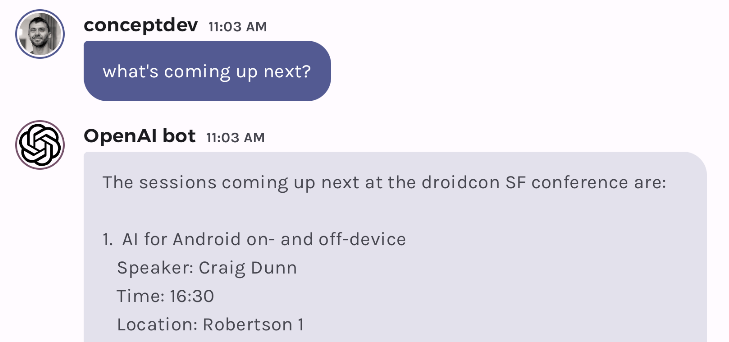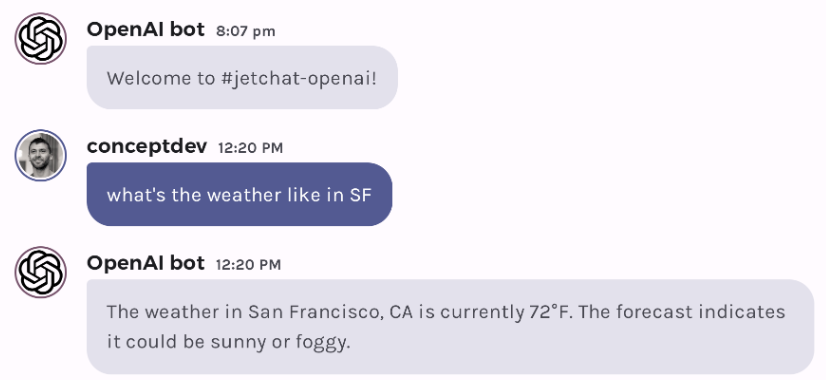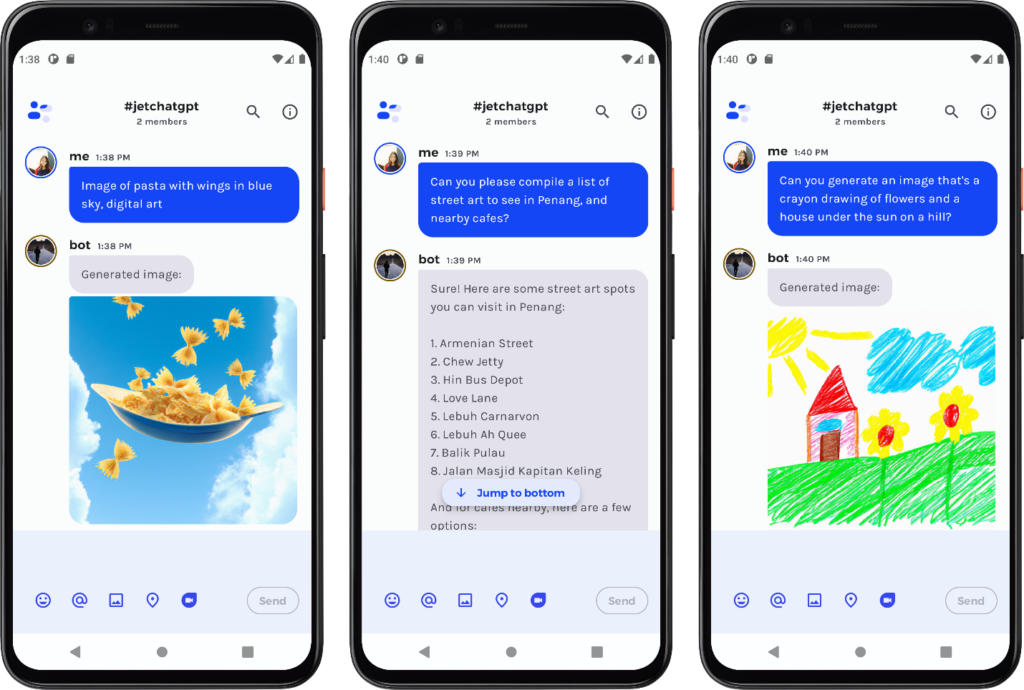Post by this author


Chat memory with OpenAI functions

Combining OpenAI function calls with embeddings

OpenAI chat functions on Android

Embedding vector caching

JetchatAI gets smarter with embeddings

Jetchat with OpenAI on Android

OpenAI API endpoints

ChatGPT on Android with OpenAI


 Light
Light Dark
Dark